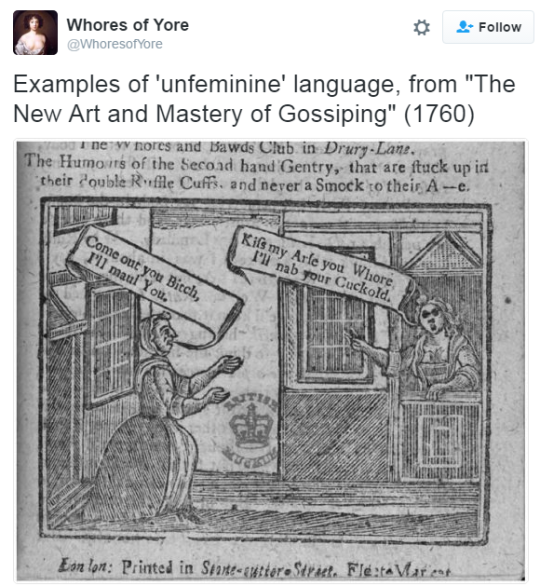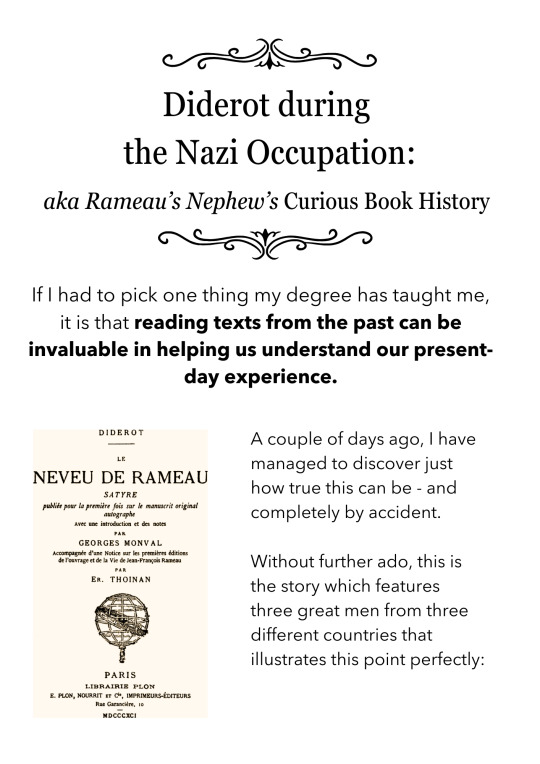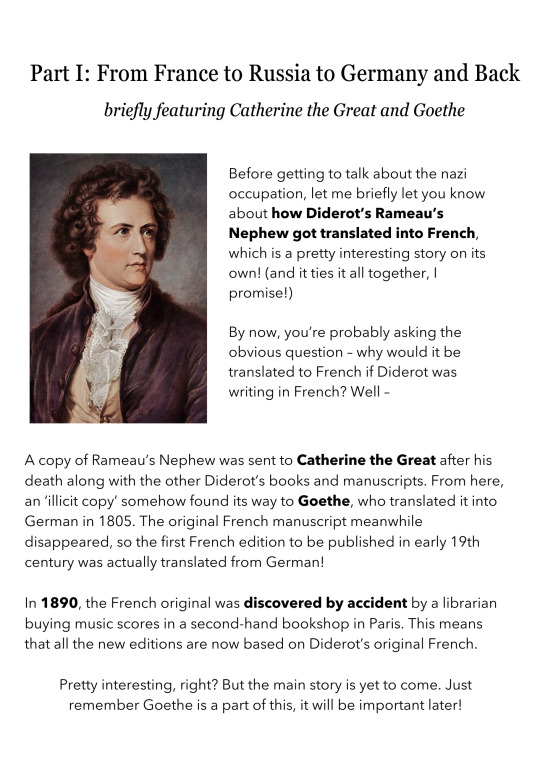Photo

the more things change the more they stay the same
380K notes
·
View notes
Text
by far the funniest thing about reading fanfiction as a political professional is that I can always tell exactly who has and hasn't been to a fundraiser or gala based on how they write them
6K notes
·
View notes
Text
Although foreign despatches remained a mainstay, Renaudot began to offer in addition increasingly detailed reports of the king's activities, from Paris, Versailles or St Germain. It was here that the Gazette deviated most profoundly from the European norm, for in contrast to the dry detail of the foreign despatches, the news from court adopted a tone of worshipful adulation. Renaudot's glorification of the king was unrestrained and unremitting: France was blessed with a ruler of rare gentility, talent, courage and humanity. This catalogue of all the virtues extended of course to artistic talents: he performed at ballet ‘with the delight inseparable from all the activities to which His Majesty applied himself’.
The reality was that Louis XIII was never robust; the steady deterioration of his health in 1642, well known at court, was not touched upon in the Gazette. The same gushing deference was of course extended to Richelieu, to whom Renaudot exhibited unstinting loyalty. [...] The Gazette was soon being pirated in provincial markets: in Rouen from 1631 and from 1633 in Aix-en-Provence. Rather than engage in costly litigation, or supply the market himself from Paris, Renaudot found a novel solution: he franchised the text of the Gazette to licensed provincial printers. In return for a fee they published their own editions. Thus regional editions of the Gazette were established in Rouen, Lyon and Bordeaux. [...] In the second half of Louis's reign a conscious effort was made to bring an ever larger number of France's provincial cities into the orbit of the national press. [...] In addition to the established local editions at Lyon, Rouen, Bordeaux and Tours, a further sixteen cities published editions of the Gazette between 1683 and 1699; the War of the Spanish Succession between 1701 and 1714 brought a dozen more into the network. In each case a copy of the Parisian edition was carried down the postal routes to the licensed local bookseller; the day of publication depended on the efficiency of the post. Thus the Gazette published each Saturday in Paris could appear on Sunday in parts of the Paris basin, but only on the following Thursday in Bordeaux, Lyon and La Rochelle.
This remarkable system was unique in Europe. In no other state was a monopoly preserved for a single official paper published and reproduced in up to thirty different locations. Through all of this time the Gazette remained a faithful mouthpiece of official policy. [....] A brutal series of defeats from Blenheim (1704) to Malplaquet (1709) shattered the aura of Europe's most professional army. Little of this appeared in the Gazette. By this time the various branches of the French bureaucracy were monitoring the paper with some care. In 1708 the editors were rebuked for describing the campaigns in the Caribbean in too much detail. In times of war, they were bluntly informed, ‘it is not good that the public should be so well informed’. But public interest, and anxiety, could not be quelled by silence.
The gap was inevitably filled by the ubiquitous manuscript newsletters: as the Gazette became more reticent, these became the single most important source of military and diplomatic news. Supplied with reliable intelligence by the clerks of the royal postal service and circulated around the coffee houses, these newsletters were almost impossible to control. The government's irritation found expression in an ordinance of 1705 prohibiting the writing and distribution of such newsletters, an order renewed on an annual basis for several years; a sure sign that the prohibition, although given ‘by express order of the king’, was having no effect. The arrest and interrogation of several novellistes in 1706 turned the spotlight on the clerks of the Paris post office, thirty of whom were taken into custody. Their testimony revealed that the news writers had a well-developed system of information exchange between the Paris and Lyon post offices, and a client list that included some of the most powerful in the land.
[...] In addition to upholding the Gazette monopoly, royal officials had also consistently favoured the major Paris publishing houses when awarding permission to publish books. [...] With nothing to lose, Rouen developed considerable notoriety as a centre of production of disrespectful libels; Lyon, meanwhile, became a major distribution centre for the foreign gazettes.
5 notes
·
View notes
Text

I know it's not a competition, but I think this lovely author's 1986 article title won JSTOR (and my heart)
37 notes
·
View notes
Text

d'Alembert's Dream (and why you should read it)
I feel like I need to put my (very scattered) thoughts down.
Don't expect much academic value, the text absolutely deserves an in-depth analysis but it's currently so hot in Prague and my brain is just running off on iced coffee & vibes
it also a sort of continuation of this post which finally pushed me to start looking more into Diderot! (thanks to @frevandrest for kick-starting the interesting thread ✨)



Few gems (indiscreet jewels?) from d'Alambert's Dream in no particular order:
It reads like a philosophical dialogue between to equal partners one of whom is a woman
Another feminist brownie point for Denis? It does get a tad bit mainsplain-y at times, but not more than any texts that would be published in the 21st century.
The majority of the text is a dialogue is between a doctor and Mme l'Espinasse, who is consistently portrayed as curious and intelligent. She asks interesting questions, understands what the doctor is talking about almost immediately most of the times and she even comes up with one of the central allegories/metaphors (the spider one!) than then runs through the text.
It was honestly refreshing to read.
The doctor also tells a story about a woman overcoming her mental health issues with regular training and pure strength of will, all on her own! (I'm not saying it's realistic or that it's not often necessary to seek help but purely on the gender discussion level, you can see how a story like that grants women a lot of agency, right? Love to see it!)
2. The format is hilarious
So I've long held the opinion that it's a real shame that most contemporary philosophy feels very dry in comparison to past centuries when they just wrote some of their deepest thoughts in the most bizarre format imaginable.
This one follows a dialogue format that can be perhaps best described as 'I argued with my friend too hard about philosophy the night before and now he's having a weird nightmarish experience. Let's have this doctor record him talking in his sleep. Oh, and Mme. l'E is also there for some reason.'
(plus it canonically features d'Alambert in a sleeping robe and a night cap!!)
3. Not only not that sexist but also Gender™?
It's only one paragraph and of course, it's a product of it's time but still, it does talk about blurring the lines between the male and female biological sex in an interesting (though outdated) way. Don't let anyone convince you that discussions about gender are a 21st century invention!
4. I'd also lovingly describe the text as an 'epistemological discussion with palpable erotic tension', aka:

No honestly there's much more tension between the Doctor (a very obvious Diderot self-insert) and Mme l’Espinasse than in your average Netflix wannabe period drama.
It features gems such as:
a passage in which they discuss bodily sensations and the sense of touch in which the doctor proceeds to asks Mme. l'E about female orgasm. Or something very close to that. In a very hush-hush 1700s coded language kind of way, but still?
she also says something that the doctor deems to be really smart, after which he asks for a permission to hug her (weird. but yay for consent?), at which point d'Alambert wakes up, sees the two hugging and comments that it is 'very much like him to do something like that'
There's also links to mental health and interesting parallels between the text and my thesis! Also Voltaire mentions, because of course.
I read it in Czech but I should be able to look up the receipts... I mean textual evidence upon request if anyone happens to be interested!
40 notes
·
View notes
Text
Rameau's Nephew: A Case for Book History





if you've scanned through the whole text you're getting a strawberry as a treat: 🍓
41 notes
·
View notes
Text
I hate I when I get an idea for a novel. Like oh no here starts the slow sad slip n’ slide to dissapointment again.
29K notes
·
View notes
Photo

Actors on the set of Sofia Coppola’s Marie Antoinette.
15K notes
·
View notes
Text
online library so far:
margaret atwood
the brontës (the complete works is a MASSIVE file fyi)
anne carson
hélène cixous
bell hooks
clarice lispector
audre lorde
virginia woolf
compilations
feminist theory
academic writing (both books and articles)
everything here is in pdf format so you should be able to download and read it on any device. it’s slow going because i have a lot of epubs that i have to convert before uploading and the folders i’ve listed here are neither complete nor comprehensive, but it’s a start!
29K notes
·
View notes
Text
am always obsessed when someone says to a character “call off your dog” about another character.
39K notes
·
View notes
Text
if you’re white and wanna write a poc character and feel awkward about it i implore you to ignore any twitblr stuff treating it as a massive ethical burden and instead come in more with the same mindset you’d have if you wanted to write about idk firefighters but didn’t know anything about firefighters so you do... research. Like fuck off with the weird kinda creepy calls for spiritual introspection you’re not writing about god damn space aliens you’re writing about humans and if you think you need more perspective of different life experiences just read?
165K notes
·
View notes
Text
on the first night that little wei ying comes to lotus pier, jiang cheng cries and tells wei wuxian that he's sorry for sending him away, and wei wuxian says that it doesn't matter, and when jiang yanli asks jiang cheng to bring wei wuxians blankets back inside, he says he already has. on the floor of guanyin temple, jiang cheng cries and tells wei wuxian that he's sorry for sending him away, and wei wuxian says that it doesn't matter, to let it go, and when no one asks jiang cheng to bring wei wuxian chenqing, he already has. can anybody hear me. can anybody fucking hear me
44 notes
·
View notes
Text


From the afterward to A Wizard of Earthsea. Ursula gets it.
typed text below:
Image ID: Two book page photos reading: "War as a moral metaphor is limited, limiting, and dangerous. By reducing the choices of action to "a war against" whatever-it-is, you divide the world into Me or Us (good), and Them or It (bad), and reduce the ethical complexity and moral richness of our life to Yes/No, On/Off. This is puerile, misleading and degrading. In stories, it evades any solution but violence and offers the reader mere infantile reassurance. All to often the heroes of such fantasies behave exactly as the villains do, acting with mindless violence, but the hero is on the "right" side and therefore will win. Right makes might.
Or does might make right?
If war is the only game going, yes. Might makes right. Which is why I don't play war games
To be the man he can be, Ged has to figure out who and what his real enemy is. He has to find out what it means to be himself. That requires not a war but a search and a discovery. The search takes him through mortal danger, loss, and suffering. The discovery brings him victory, the kind of victory that isn't the end of a battle but the beginning of a life."
Signed, "Ursula K. Le Guin"
End ID
390 notes
·
View notes
Text


Section from Le Guin’s afterword to The Tombs of Atuan that makes me crazy
87 notes
·
View notes
Text
pssssst hey. hey. free and expansive database of folk and fairy tales. you can thank me later
47K notes
·
View notes
Text
Ten inessential worldbuilding features for local communities in your fantasy RPG:
A grievance or conflict of interest with a neighbouring community which the community's members feel much more strongly about than the issue's magnitude really warrants
A substance or commodity important to everyday life with no local source, and the complicated and inconvenient arrangement the community has made to obtain it from outside sources
A local practice or custom whose original motivation has been rendered obsolete by changing circumstances, and which is now carried forward out of tradition
Something that's technically illegal, but everyone does it on the sly anyway, with enforcement of its illegality being reserved for people the community's leaders want to mess with for unrelated reasons
An obscure piece of trivia or local history which the community's members regard as obvious and widely known, to the extent of treating outsiders with contempt for revealing their ignorance of it
Some undertaking or realm of achievement in which the community isn't particularly exceptional, but which the community's members believe they're the best around at as a point of civic pride
A mostly harmless thing that nobody talks about because its existence or some facet of its historical context is regarded as an embarrassment to the community
A particular prank that's become traditional to play on visitors to the community, and which occasionally gets taken further than is strictly appropriate
A specific area of the setting's history where what the community's members insist really happened is wildly at odds with the accepted version of events
A genuinely dangerous circumstance that everyone treats with casual disregard because it's always been there, and only a damn fool would actually get hurt by it anyway
11K notes
·
View notes
